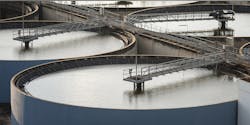Bacteria That Can Improve Bio-Based Fuels
Using an “electrical” bacteria, researchers at the Department of Energy’s Oak Ridge National Laboratory are working on a process that recycles wastewater for biofuel production. Because the process generates hydrogen, it can then convert bio-oil into liquid fuels like gasoline or diesel.
The process works by converting plant materials into higher value products like fuels. Bacteria that digests organic compounds breaks down organic acids in bio-oil produced from plant feedstocks.
“We are taking this waste, which can be 20 to 30% of the biomass that you put into the process, making hydrogen from it and putting that hydrogen back into the oil,” says ORNL researcher Abhijeet Borole. “You can recycle the water, produce clean hydrogen and eliminate the natural gas.”
Currently, the team can produce 11.7 liters of hydrogen each day at rates that are necessary for industrial use. While unable to work in a commercial setting at this point, this work points to the possible viability of bio-refineries that use microbial electrolysis.
“These systems have potential for wide-ranging applications, including energy production, bioremediation, chemical and nanomaterial synthesis, electro-fermentation, energy storage, desalination and produced water treatment,” says Alex Lewis, a doctoral student at the University of Tennessee’s Bresden Center for Interdisciplinary Research and Education.
The research team’s finding can be found in their recent paper “Proton Transfer in Microbial Electrolysis Cells,” which appears in Sustainable Energy & Fuels.
